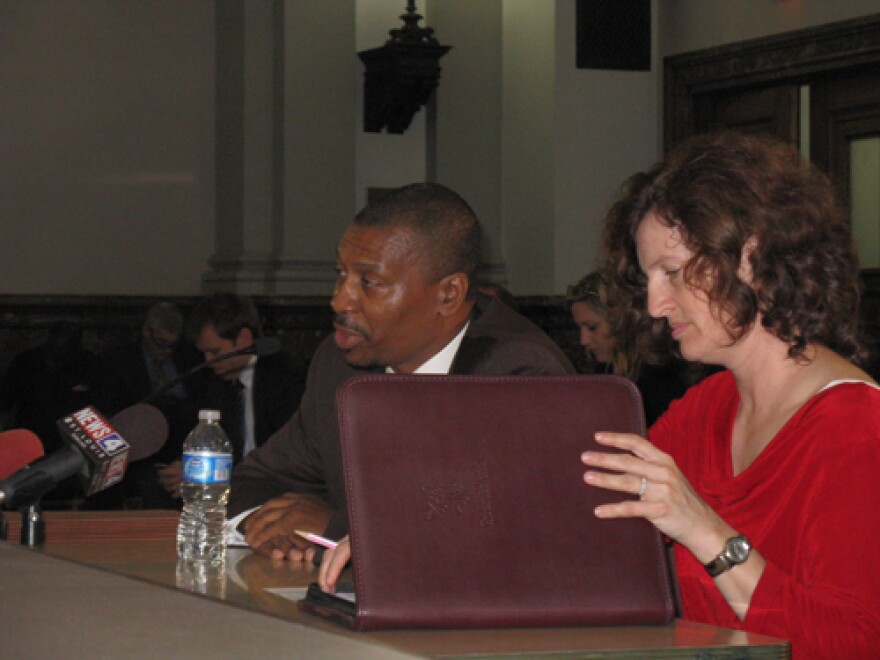The highest-ranking city official to face discipline so far for problems at the St. Louis jails spent four hours under oath today, giving his perspective on the situation that led to four escapes in 15 months.
Corrections commissioner Gene Stubblefield was placed on forced leave in September, just hours before the fourth escape. Today's hearing was the first time he has answered questions since that happened.
"I think after eight years of cutting significant positions that we have finally reached an era of vulnerability," Stubblefield said. He said on a scale of one to 10, he would rate the Medium Security Institution at a four, and the maximum security City Justice Center downtown a seven, simply because it's better designed.
Aldermen twice asked Stubblefield if he accepted any responsibility for the escapes. Twice, he answered that while he would have loved to investigate his own policies and procedures, he could not because of a lack of staffing.
"It was frustrating," Stubblefield said. "I personally wanted to figure out why I had an escape for the first time in eight years, and I could not investigate it in a complete fashion. That concerned me."
He also outlined several requests for additional corrections officers that went unfilled and concerns about budget cuts that went unheeded. A lack of staffing, Stubblefield said, contributes to the excessive overtime the department has racked up in recent years and can play a role in escapes by leading corrections officers to take shortcuts.
Not all aldermen bought that. Fred Wessels pointed out that two daughters of a top corrections official are among the top recipients of overtime. Stubblefield's secretary and two payroll supervisors also received approval for significant amounts of overtime pay.
"Excessive overtime in payroll is what happens when there's no supervision," Wessels said. On Twitter, Ald. Jennifer Florida, who was observing the hearing, said Stubblefield was taking no responsibility for his actions. And Ald. Carol Howard noted that the $250,000 in overtime the department was issuing a quarter would easily pay for enough corrections officers to avoid most overtime. "I don't understand how you can't fill the positions," she said.
Stubblefield was candid during his testimony, though he often paused to listen to two attorneys who accompanied him to today's hearing. He refused to answer questions just once - when Ald. Craig Schmid asked when Stubblefield's relationship with his direct supervisor, public safety director Charles Bryson, became untenable. But he said that Bryson's predecessor, Sam Simon, would defer to his experience on what positions needed to be filled.
"There was much more of a working relationship," Stubblefield said. "With the current director, I'm simply given an order to decrease my staffing level. At one time, I even asked him, 'can you please share with me your formula, because we're going to have some serious problems down the road.' And I never got a response."
"Would you describe [Bryson's] style as micromanaging?" asked Ald. Antonio French. "I don't have a problem with micromanaging as long as it's not micro-mismanagement," Stubblefield replied.
Bryson reports to Mayor Francis Slay, whose office has released a report citing a "systemic failure of leadership" as the cause of the escapes and budgetary problems. After the hearing today, Slay's top aide, Jeff Rainford, called the series of hearings a political stunt, and talk of unfilled staffing requests and scuttled investigations red herrings brought up by some aldermen to score points.
"If you had 100 cracks in your basement foundation and you fixed 99 of them, the water would find the one crack and water would still get into your basement," Rainford said. "It's the same thing with security in a jail, and that's really the problem, and it has to start from the top." Rainford said he met several times with Stubblefield on the overtime budget, and the commissioner never expressed a concern that excessive overtime would impact safety at the jails.






